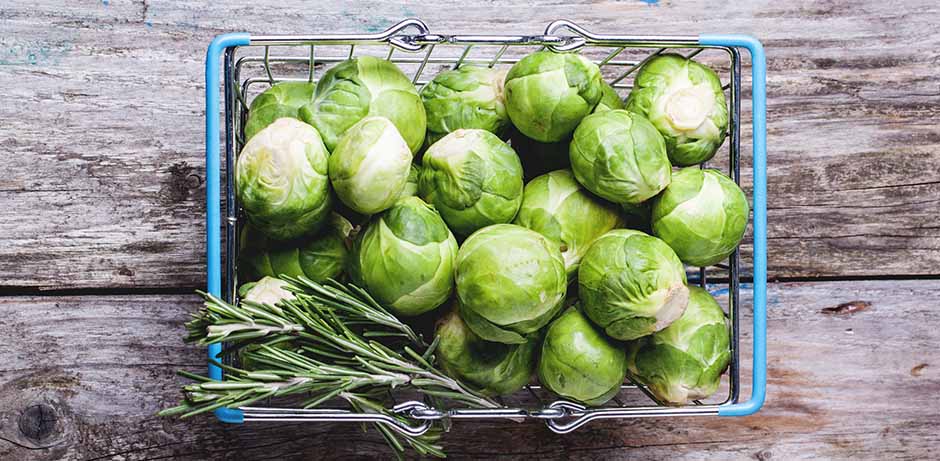Brussels sprouts have gotten a bad rap, especially because of their sulfurous odor when cooked. But if prepared properly, these miniature “cabbages” are full of flavor and nutrition.
THE GOOD STUFF
You can count on brussels sprouts to support your immune system, blood and bone health, and more. A member of the cruciferous family (which includes kale, broccoli, collard greens and cauliflower), brussels sprouts are an excellent source of vitamins C and K—one half-cup provides 60 percent of your recommended daily allowance for each. These little cabbages are also full of vitamin A, fiber and healthy-cell antioxidants, and one cup has 3 grams of protein.
PREP TIPS
When buying, look for firm, compact, dark-green heads; avoid those with yellow color or loose leaves. Before cooking, wash and clean brussels sprouts. Remove outer, wilted leaves and cut off tough bottom. Cut an X-shape in bottom; this will help them cook more evenly.
HOW TO COOK
You can boil or microwave brussels sprouts, but following are the best methods to bring out this veggie’s sweet, nutty flavor.
Steam halved brussels sprouts in a small pan with an inch of water. Cover and cook 5–10 minutes. Top with lemon juice, salt, pepper and feta cheese.
Roast (after coating with olive oil) on a sheet pan for 40 minutes at 400°. Add a little salt and pepper, or crushed red pepper flakes.
Grill as a veggie kabob. Marinate in Italian dressing with mushrooms and sliced bell peppers, and thread onto skewers. Grill 4 minutes on each side, or until tender.
Sauté with garlic and olive oil. Add fresh lemon juice and balsamic vinegar, and toss with your favorite pasta.
Stir-fry with sweet onions, carrots and snow peas.
DID YOU KNOW?
Brussels sprouts are named after the fact that they were cultivated in Belgium in the 16th century. Knowing this little fact will also help you remember that it’s brussels —not brussel—sprouts.

